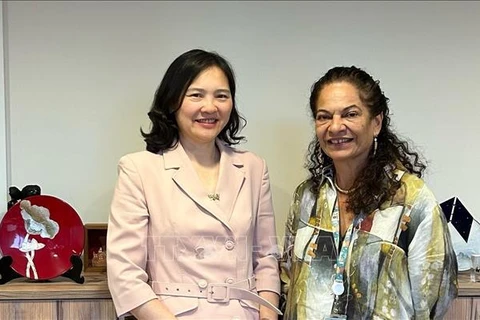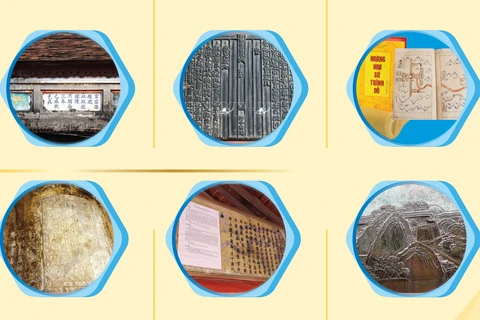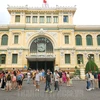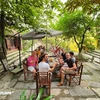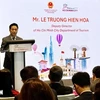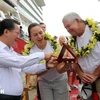
Hanoi (VNA) - The UNESCO movement has significantly contributed to the preservation and promotion of cultural heritage globally.
In addition, it has laid the groundwork for the development of cultural industries, blending tradition with innovation to create sustainable growth. Initiatives such as the UNESCO Creative Cities Network and the International Fund for Cultural Diversity have provided a solid foundation for cultural and creative industries to flourish.
Hanoi's membership in the UNESCO Creative Cities Network has sparked strategic shifts in the city’s approach to culture and urban development.
The transformation of ordinary spaces into vibrant public artworks—such as the murals at Phung Hung and the revitalization of riverside areas into creative art spaces - highlights the positive impact of UNESCO's involvement.
The once-neglected footbridge on Tran Nhat Duat Street, now adorned with colorful installations, is a prime example of how creative design can enhance urban life and contribute to economic growth.
Hanoi, along with Hoi An and Da Lat, represents Vietnam in UNESCO Creative Cities Network.
These cities harness rich cultural values to develop distinctive cultural products that engage with the global market while maintaining national identity.
Globally, cultural industries are becoming increasingly vital to national development. UNESCO Creative Cities Network, which emphasizes culture and creativity as drivers of sustainable urban growth, now includes over 350 cities working together to place creativity and cultural industries at the core of their development plans.

According to Tran Van Manh, Vice Chairman of the Asia-Pacific Federation of UNESCO Clubs and Vice President and General Secretary of the UNESCO Vietnam Federation, the efforts of UNESCO-related organizations worldwide are instrumental in fostering the growth of cultural industries.
At a recent international conference in Quang Ninh, experts discussed the integration of technology into the development of cultural industries.
The combination of culture and technology is seen as crucial in an increasingly interconnected and globalized world.
Huy Nguyen, CEO of Phygital Labs, proposed a model for heritage economics where digital technologies are used to safeguard and monetize cultural assets.
This includes digital replicas of heritage artifacts for global exhibitions, offering visitors virtual experiences and generating revenue through online ticket sales.

Further expanding on this, the digitization of heritage artifacts opens up new economic possibilities.
Using blockchain technology ensures the authenticity and security of transactions, broadening the reach of cultural heritage through digital markets.
Dr. Le Cao Thang of the Vietnam General Confederation of Labor emphasized the need to raise awareness among officials and the public about the inevitable transition to a digital culture.
This involves enhancing legal frameworks, applying Industry 4.0 technologies, and developing a comprehensive cultural database.

The development of human resources for digital transformation, strengthening international cooperation, and constant monitoring of the digital cultural landscape are critical components of this strategy.
As Vietnam embraces digital culture and global integration, the challenge lies in ensuring that society as a whole recognizes the importance of this transition.
Strengthening technology adoption and building a robust legal infrastructure are key to fostering a dynamic and innovative cultural industry./.


